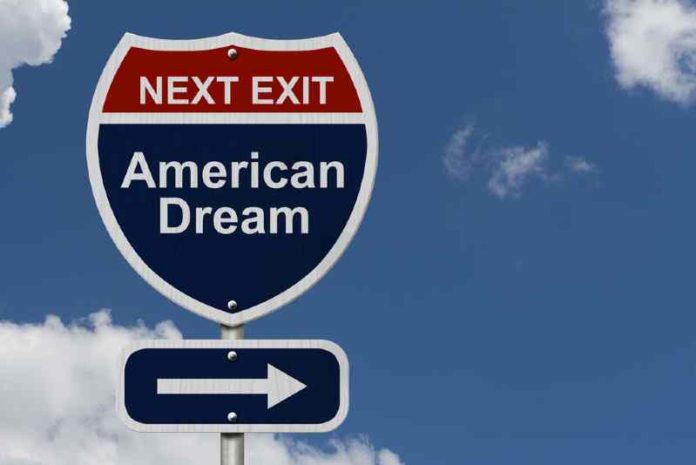To my surprise, in recent days I’ve found a topic that political candidates, conservative and liberal alike, agree on: The American Dream is either dead, or dying.
“For many, the American Dream has become a nightmare.” —Bernie Sanders
“We’re dying, we’re dying . . . we’ve got nothing.” —Donald Trump
A conservative perspective might suggest that poor trade deals and cheap foreign competition have brought down the dream. A more-liberal view might argue that it’s greed within our own society, aided by a government that favors corporations. While I am happy to see a rare moment of political consensus, I believe they are both wrong.
I believe the death certificate on the American Dream has been falsely recorded for political gain for four reasons. First, it’s not statistically accurate. Second, it implies that it was somehow easier in the past to “make it” in America than it is today. Third, it assumes that this dream is purely financial in nature. And finally, it misses the mark on timing. The American Dream has always been about the future, not the present: It is an exercise in hope.
Statistically Inaccurate
As a CEO, I want our employees to be gaining economic ground, and I know that statistically, they are.
Michael Strain recently wrote an exceptional column for the Wall Street Journal titled “The American Dream Is Alive and Well,” citing extensive data that demonstrates real economic progress for working Americans. Since 1990, real wages for the “typical” worker have increased by 33 percent, adjusted for inflation. According to the US Census Bureau, from 1967-2018, the share of US households earning less than $35,000 fell from 36 percent to 28 percent, while the share of US households earning over $100,000 rose from 10 percent to 30 percent. Additionally, according to Strain, 86 percent of people in their forties today, who were raised in the bottom 20 percent of US economic households, have a higher income than their parents did at the same age.
Easier in the Past
The idea of an American Dream dates back to our nation’s founding, and was often linked to the expanding frontier. From the comfort of the present moment we likely experience a false nostalgia about the ease with which those who came before us advanced. Was the Dream easier for pioneer families moving west, in wagons and on foot, into an ungoverned land? Was it easier for immigrant families arriving at Ellis Island in New York, everything they owned in a suitcase? Was it easier throughout the twentieth century, hallmarked by a Great Depression and two world wars?
Was the American Dream easier to claim in the past than it is today? I doubt it. The truth is, the Dream has never been easy to achieve.
Purely Economic
Freedom is more than just an economic exercise. To suggest that the American Dream can only be measured in inflation-adjusted dollars is to miss out on giant swaths of opportunity. Money matters, but so too does love, and friendship, and pursuits of the heart. It’s not fair, or accurate, to say that only those who advance the most financially are living the Dream. Anyone can be living the Dream in a manner that respects but transcends dollars. The Dream is aligning your life with your own unique voice and aspirations.
A Dream of Hope
The American Dream has always been about the possibilities of tomorrow, a manifestation of the heart and mind. The American Dream is one that we create for ourselves, and it’s about the potential for change in the future. There is no justification for dampening that dream, and with it, the potential of tomorrow. The Dream is whatever we imagine it to be.
A Final Word
Everywhere in this great country, Americans ascend and advance. The vast majority of employers in America today want the people within their companies to grow and progress, financially and otherwise. A company only rises when the people within the organization rise. In the twenty-first century, a vibrant company truly shines only through the collective energy of its individual members. Winning today must include everyone.
The future is always ours to create. So, I say, keep dreaming, America.
Kevin Hancock is the CEO of Hancock Lumber and author of The Seventh Power: One CEO’s Journey into the Business of Shared Leadership.
American Dream stock photo by karen roach/Shuttertock







